Initial talk: Bloomington city council balks on 2023 budget, likely looking for better employee pay before late October vote


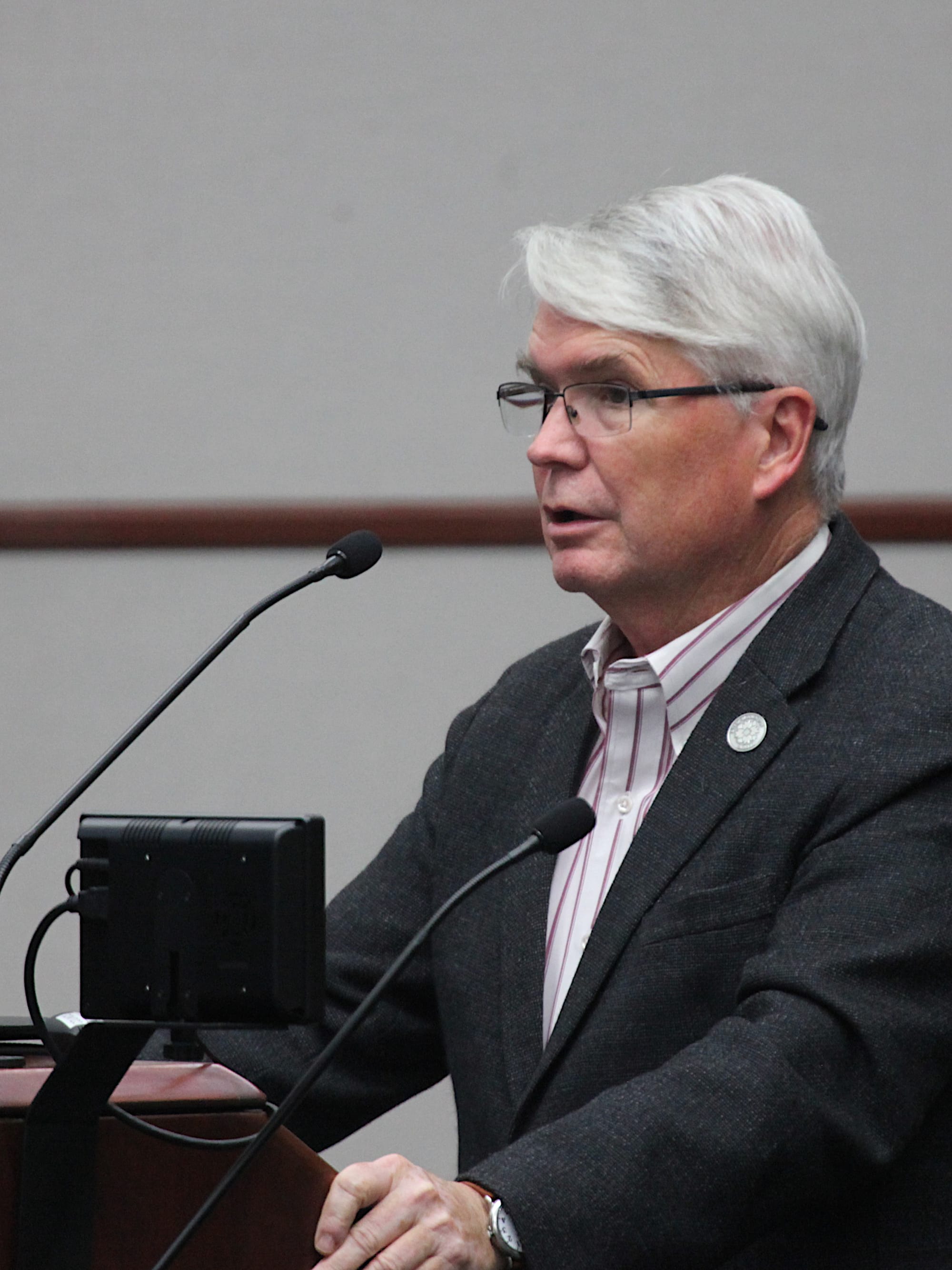
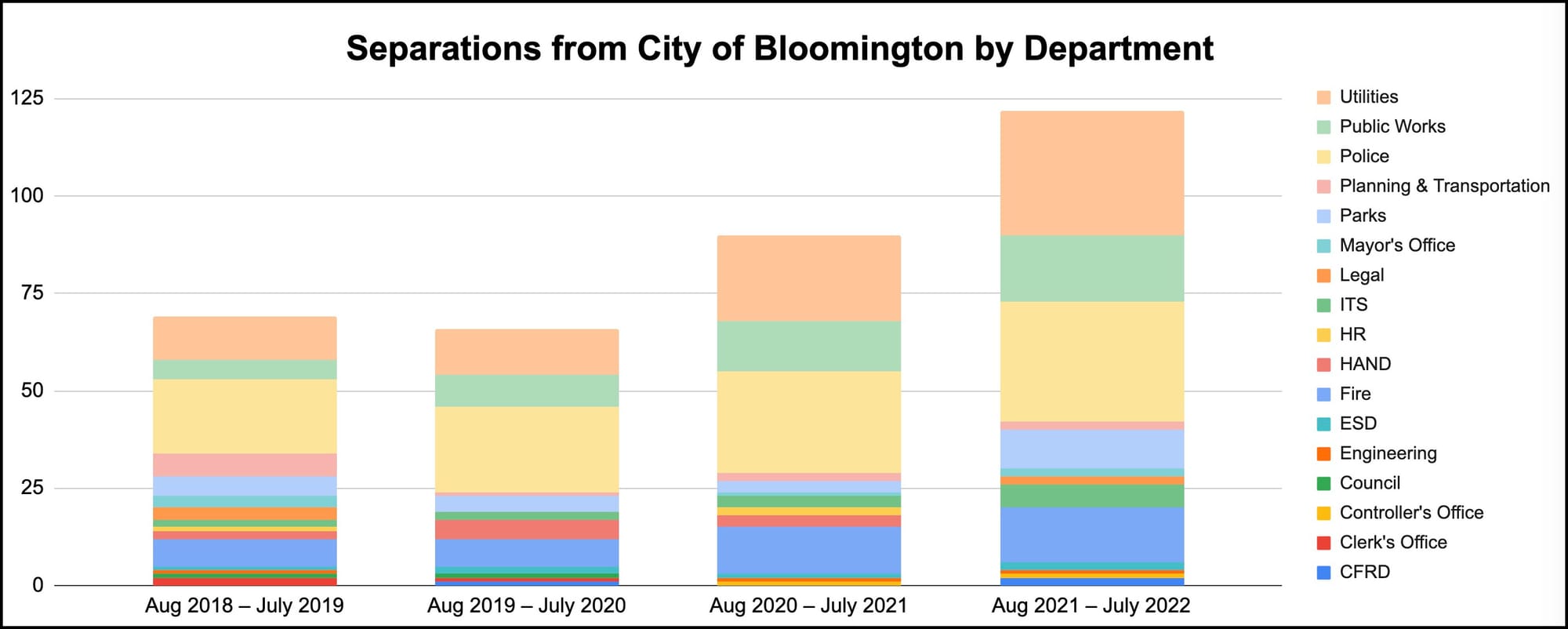
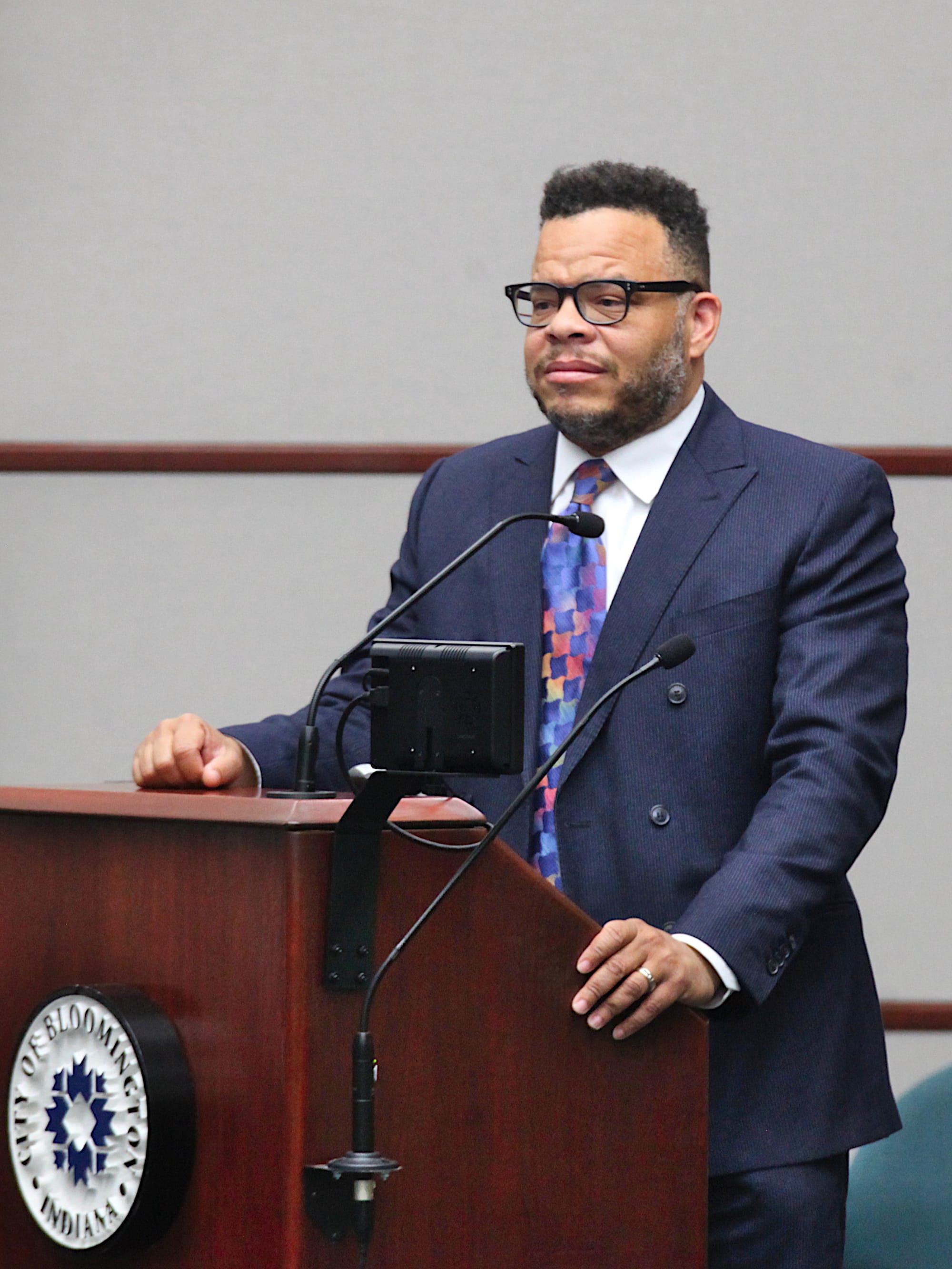
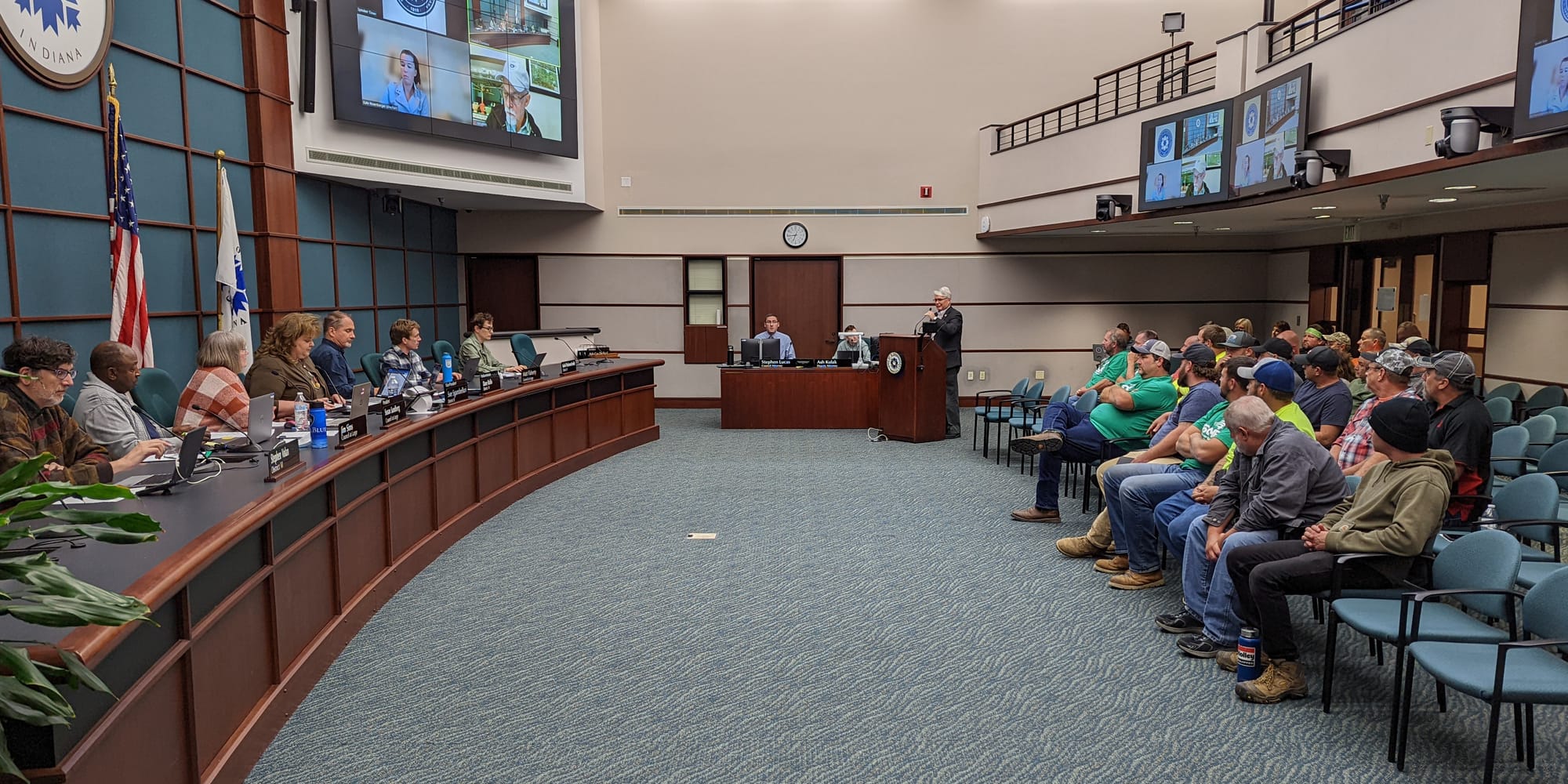
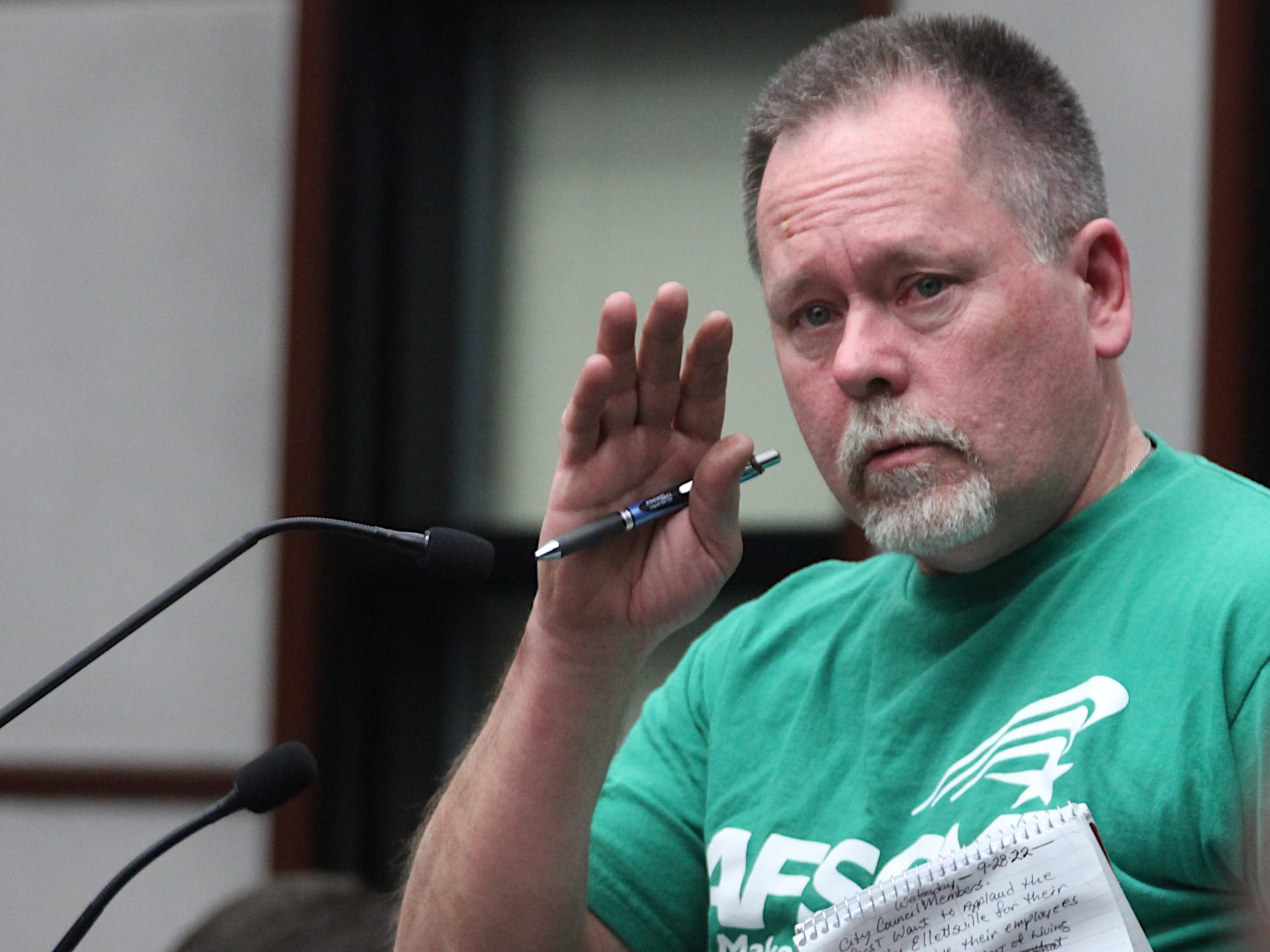
“Rather than have a transformative budget, I would like a budget that is fair and equitable to our city employees.”
On Wednesday night, that’s how Bloomington city councilmember Dave Rollo summed up his thoughts on mayor John Hamilton’s proposed 2023 budget.
Rollo’s choice of words was not accidental—Hamilton has pitched his budget as “transformative.”
There’s no question the dollar figure is bigger. Hamilton’s $129.4-million budget proposed for 2023 is $22.4 million more than last year, fueled by $16 million in additional revenue from a 0.69-point increase in the local income tax.
Rollo and several of his city council colleagues don’t think the proposed 5-percent increase in employee base compensation is enough to retain and recruit city employees.
The rate of inflation measured between December 2020 and December 2021 was 7.5 percent. From August 2021 to August 2022, it was 8.1 percent.
Faced with high inflation many city employees are leaving for better-paying jobs. From August 2021 through July of 2022, 122 city employees have left the city for one reason or another. That’s 35 percent more than the 90 employees who left the year before.
And it’s in the neighborhood of double the 66 departures from August 2019 to July 2022 and the 69 departures in the year before that. Of the 42 employees who have completed an exit survey this year, 19 have said their new position offers a higher salary.
So on Wednesday at the council’s committee-of-the-whole meeting, the tally for the council’s straw poll vote was 0–6–3. That means not one of nine councilmembers was willing to say they’d support the mayor’s budget when it comes time for the actual vote on adoption, which is set for Oct. 12.
The three who abstained were: Sue Sgambelluri, Isabel Piedmont-Smith, and Steve Volan. In a straw poll vote, abstention is a customary way for Bloomington councilmembers to convey their lack of support for a proposal.
That does not mean councilmembers are looking to reject Hamilton’s 2023 budget when they vote on Oct. 12. It means they’re looking for some concessions from Hamilton for better employee compensation, among other areas. Or they want clearer answers to questions.
About his no vote, councilmember Jim Sims said, “I do not want that to indicate to anyone that [I have] plans to sabotage the entire budget at our next opportunity.” Sims added, “It’s just I still have some questions, and I really want to indicate that, and I think no was the best way.”
Some questions Sims has posed relate to how the success of proposed new talent acquisition positions will be measured. In addition to those recruitment positions, Hamilton’s overall budget proposes a couple dozen other new positions.
Attending the council’s committee-of-the-whole meeting on Wednesday were two dozen members of the AFSCME Local 2487 union. Several of them took turns at the public mic to advocate for higher pay, to help retain existing employees.
Among them was Britt Shipley, who works in the street department. He told the city council, “I’m actively looking for another job.” He continued, “And we have several more in our department looking for other jobs to leave now.”
Shipley wrapped up by saying, “So, all I can say is y’all probably ought to have a Plan B for winter—because you ain’t gonna have enough people to plow your roads.”
The current AFSCME contract runs just through the end of the year, and they’re currently in negotiations with the administration. The union includes workers in utilities, the street and fleet divisions of public works, parks and recreation, sanitation, and the animal shelter, among others.
Across the total city workforce, there are 190 AFSCME positions budgeted for this year. Of those, 173 are filled. Based on the Hamilton administration’s responses to city council questions, to give AFSCME employees a 5-percent base pay increase would “cost the city” more than $500,000.
One AFCME worker took issue with Hamilton’s portrayal of the 2023 budget as reflecting an 11-percent increase in compensation, even though the base pay increase is proposed to be 5 percent. For a $40,000-a-year employee, Hamilton calculated the benefit: The 5-percent increase of $2,000, added to a $1,000 annual retention bonus, a $780 matching savings plan, and $850 in health savings account contributions makes $4,630, or an 11-percent bump.
Responding to that calculation at the public mic was utilities worker Steve Robertson, who disagreed with Hamilton’s contention that Bloomington is a “workplace of choice.” Robertson said, “You know, at one time it probably was. But it’s not right now, because we’re losing employees faster than we can hire.”
About the 11-percent calculation, Robertson said, “You can’t include that $1,000 bonus in that percentage, because when you get a percentage raise, it carries on with you year after year after year. The $1,000 is a one-time deal.” Robertson added, “So don’t throw that in on the 11 percent—you’re kind of padding the numbers.”
When the proposal is in front of them on Oct. 12, a realistic possibility is that councilmembers will vote to postpone a decision until later in October. That’s based on the way the city council handled the budget vote last year. Under state law, they have to adopt a budget by the end of October.




Comments ()